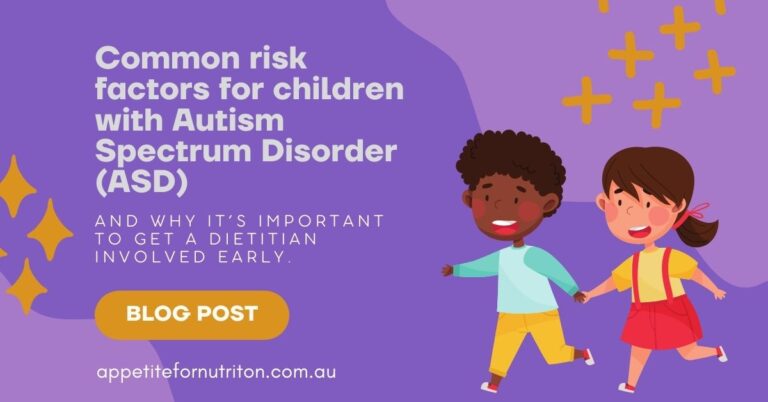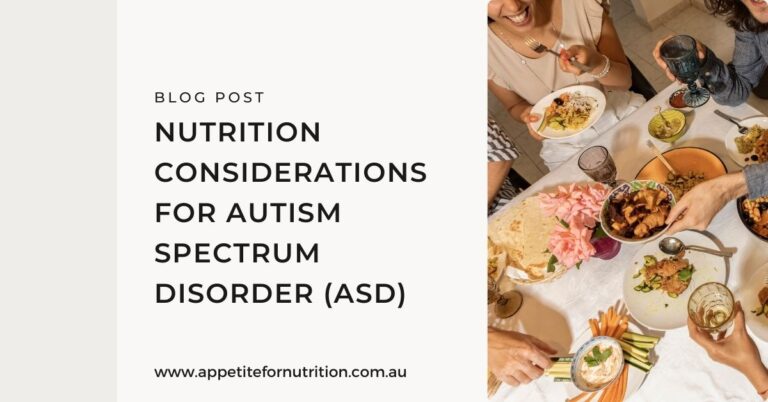
10 Simple Nutrition Hacks to Make Eating Healthy Easier with ADHD
Managing ADHD can be challenging, especially when it comes to maintaining consistent energy and concentration throughout the day. Nutrition plays a key role in supporting focus, mood stability, and overall wellbeing — yet for many people with ADHD, planning, preparing, and remembering to eat balanced meals can feel overwhelming.
To help make things simpler, here are dietitian-approved strategies and an easy way to stay on track with our custom ADHD-friendly meal plans, designed specifically for individuals with ADHD.
1. Create a Flexible Meal Plan
Having a plan takes away the daily stress of deciding what to eat. A simple weekly plan can reduce impulsive eating and prevent skipped meals — both common ADHD challenges.
Tip: Use a planner or app to outline your meals and snacks. Keep it flexible and repeat your favourites to reduce decision fatigue.
🥗 Need help getting started? Our NDIS-registered dietitians can design ADHD-friendly meal plans tailored to your goals, schedule, and preferences.
2. Prep Ahead to Reduce Overwhelm
Meal prepping once or twice a week makes healthy eating automatic. It prevents the “what do I eat?” spiral that often leads to skipping meals or choosing fast food.
Tip: Chop vegetables, cook grains, and portion snacks in clear containers so healthy options are visible and easy to grab.
🔗 Explore our Healthy Snacks on the Go guide for quick supermarket ideas.
3. Keep Balanced Snacks Within Reach
Having nutritious snacks ready can prevent impulsive or emotional eating. Look for combinations with protein, fibre, and healthy fats to support focus and fullness.
Examples: Greek yoghurt with nuts, veggie sticks with hummus, or trail mix with seeds and fruit.
4. Simplify Cooking
Cooking doesn’t have to be stressful or time-consuming. ADHD-friendly cooking focuses on simplicity, structure, and minimal cleanup.
Tip: One-pot meals, slow cooker dishes, or sheet-pan dinners make life easier.
🔗 Need inspiration? Check out our Low-Calorie Takeaway Tips for healthy grab-and-go options.
5. Set Reminders to Eat Regularly
Skipping meals can worsen ADHD symptoms by lowering energy and mood. Setting alarms or reminders helps establish consistency.
Tip: Schedule meals every 3–4 hours and include small, protein-rich snacks.
💬 Our NDIS Dietitian Services can help you structure a daily eating schedule that supports energy and concentration.
6. Focus on Balanced Plates
Aim for meals that include lean protein, complex carbohydrates, and healthy fats. This combination supports blood sugar stability — essential for focus and mood regulation.
7. Stay Hydrated
Dehydration can mimic ADHD symptoms such as poor focus and fatigue. Carry a water bottle and set reminders to sip regularly.
Tip: Add fruit or herbs to make hydration more appealing.
8. Limit Processed and Sugary Foods
Highly processed foods can trigger energy crashes and worsen hyperactivity or brain fog. Choose whole foods where possible — fruits, vegetables, grains, proteins, and healthy fats.
Tip: Read ingredient labels and choose products with short, recognisable lists.
🔗 Also read: Mastering Diabetes: Key Sugar Insights — useful even if you’re not diabetic, for understanding blood sugar control.
9. Build a Supportive Environment
Support is key. Involve family or carers in meal planning, shopping, and cooking to create a positive food environment.
Tip: Turn cooking into a shared, enjoyable activity to reduce stress and strengthen habits.
10. Listen to Your Body
Everyone’s ADHD experience is unique. Track how different foods affect your focus, mood, and energy — and share your findings with your dietitian.
💡 Journaling your food-mood connection can also support emotional regulation. Read more about this in The Gut–Brain Connection and Mental Health.
How Appetite for Nutrition Can Help
Eating well with ADHD doesn’t have to be overwhelming. Our NDIS-registered dietitians specialise in helping neurodiverse individuals build healthy, sustainable eating habits with structure and flexibility.
We offer:
📅 Ongoing nutrition coaching (in-person or telehealth)
💬 Practical strategies to support focus, mood, and energy
Start today — book a consultation with an NDIS dietitian and take the first step toward better focus, energy, and wellbeing.
This blog was updated October 2025.
Frequency Asked Questions
Looking for more information? Explore our FAQs for clear, evidence-based answers about nutrition services, NDIS dietitian support, Telehealth appointments, and meal planning programs.
Yes. Research shows that balanced meals — rich in protein, omega-3 fats, and complex carbohydrates — can help stabilise energy, improve focus, and support neurotransmitter function in people with ADHD.
Foods high in protein, iron, zinc, and omega-3 fatty acids (like eggs, salmon, nuts, and whole grains) are great for brain function and concentration.
Limiting processed foods, refined sugars, and artificial additives can help reduce energy crashes and mood swings. Everyone’s sensitivity varies — so tracking how your body responds is important.
A dietitian helps you plan structured, balanced meals, manage appetite regulation, and improve consistency. They also tailor meal plans to your energy levels, sensory preferences, and daily routine.
Yes. Many individuals with ADHD qualify for nutrition support through the NDIS if eating habits, energy, or self-management are impacted. Our team can help you navigate your plan and access support services.
🔗 Read our full article on Nutrition Tips for NDIS Participants.



